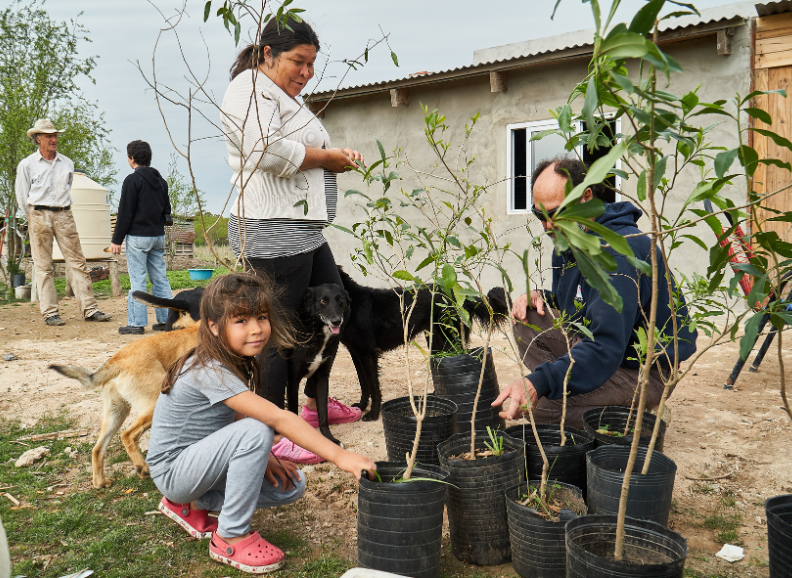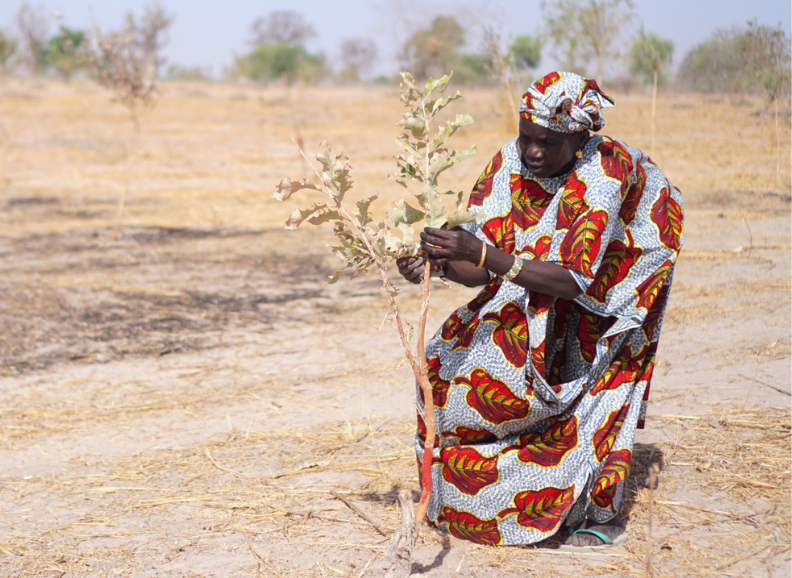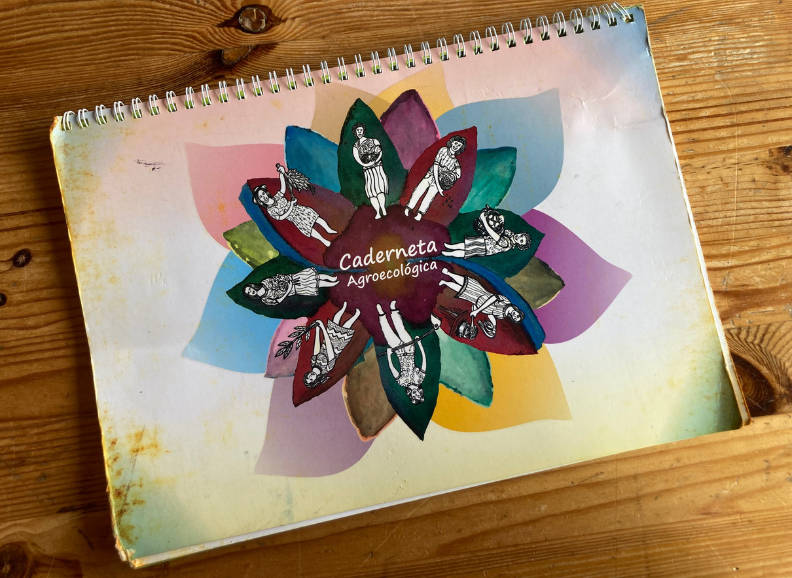Both ENDS’s partners combat land degradation and drought
For decades, the local partner organisations of Both ENDS have been developing and promoting ways to fight land degradation, desertification and drought in their surroundings. And this accounts not only for regions like the Sahel, but also for forests and wetlands. To celebrate the UNCCD's Desertification and Drought Day 2023, we'd like to show a few examples of how our partners restore ecosystems to serve the well-being of people and the environment.
Below you find the links to three stories from our partner network:
Biocultural corridors to restore the La Plata Basin
Fighting drought by protecting young trees in the Sahel
Read more about this subject
-
 Dossier /
Dossier /Communities Regreen the Sahel
In various countries in the Sahel, vast tracts of land have been restored by the local population by nurturing what spontaneously springs from the soil…
-
 Dossier /
Dossier /Wetlands without Borders
With our Wetlands without Borders program, we work towards environmentally sustainable and socially responsible governance of the wetlands…
-
 News / 15 juni 2023
News / 15 juni 2023Combating drought by protecting saplings
Koussanar, in eastern Senegal, is a small town that is expanding rapidly, surrounded by villages still rooted in rural and nomadic life. The region is hot and dry, which is exacerbated by climate change. The soil in the region is also dry and often exhausted due to a combination of factors such as unsustainable agricultural practices, (peanut) monoculture, intensive agriculture, forest fires and overgrazing. Today, however, the region's farmers and nomadic pastoralists take a different approach. They are working towards a better future by committing to the restoration of degraded land using…
-
 Event / 6 september 2019, 13:00 - 15:00
Event / 6 september 2019, 13:00 - 15:00 -
 News / 2 december 2024
News / 2 december 2024Both ENDS at UNCCD COP16
Since 1994, Both ENDS has been advocating for inclusive governance in addressing desertification, land degradation, and drought, ensuring local communities have a strong voice in global discussions. As a member of Drynet, a network of over 20 civil society organisations, we champion the inclusion of women, youth, and Indigenous Peoples in land governance and highlight the importance of locally-led initiatives. Our work promotes gender equality, agroecology, and sustainable land management. This landing page serves as a comprehensive hub for all information and updates related to the UNCCD COP16 and Both ENDS' efforts to drive positive change. Here, you’ll find key resources, initiatives, and insights into how locally-led solutions…
-
 Event / 4 december 2024, 18:00 - 19:30
Event / 4 december 2024, 18:00 - 19:30Enhancing the role of civil society in the UNCCD to achieve Land Degradation Neutrality (LDN)
Effective local action by land-using communities is at the heart of achieving LDN globally. However, their contributions are often not well recognized or adequately supported by governments and other agencies. Within the UNCCD framework, civil society organisations play a key role in engaging with policymakers in the context of recognizing and supporting these contributions by local communities. The side event will engage participants in a GEF-supported joint Drynet/ IUCN initiative to enhance the capacities of civil society to engage effectively in the achieving Land Degradation Neutrality…
-
 News / 2 december 2024
News / 2 december 2024Ten recommendations for the UNCCD COP16 to strengthen its efforts in combating desertification, land degradation, and drought
For decades, our local partner organisations have been developing and promoting effective ways to combat land degradation, desertification, and drought. This includes regions like the drylands, as well as forests, and wetlands. Supporting these locally-led actions is essential to reversing negative trends. For COP16, Drynet has developed 10 recommendations to strengthen the implementation of the UNCCD. Success at COP16 would mean turning these recommendations into action, fostering inclusive land governance and sustainable land management practices globally. By enabling locally-led…
-
 News / 2 december 2024
News / 2 december 2024Advocating for Local Solutions: Both ENDS at UNCCD COP16 to Champion Sustainable Land Management and Gender Equality
As the United Nations Convention to Combat Desertification (UNCCD) celebrates its 30th anniversary, the global community faces an urgent need to address the escalating challenges of land degradation, desertification and drought. At the forefront of these efforts, Both ENDS has long advocated for inclusive, locally-led solutions to these critical issues. In this interview, Nathalie van Haren and Yordanos Mulder, who will represent Both ENDS at the upcoming UNCCD COP16, share insights into the significance of the conference, the key issues on the agenda, and the crucial role of local communities in shaping effective land governance. They discuss Both ENDS' ongoing work to amplify the voices of marginalised groups and emphasise the…
-
 News / 15 juni 2023
News / 15 juni 2023Biocultural corridors to restore the La Plata Basin
Even a region like the South American La Plata Basin, known for it's majestic rivers and wetlands, is struggling with drought. A group of organisations…
-
 News / 19 juni 2024
News / 19 juni 2024Recognition for PROBIOMA from the Chamber of Deputies of the Plurinational State of Bolivia
PROBIOMA have received recognition from the Chamber of Deputies of the Plurinational State of Bolivia. The presentation of this tribute took place at…
-
Publication / 30 juni 2016
-
 News / 15 juni 2023
News / 15 juni 2023How Agroecological Logbooks empower women farmers in Brazil
In the Jenipapo community, in the north-east region of the Caatinga Biome in Brazil, farmer Fátima Maria dos Santos runs her farm. Fátima is applying the principles of agroecology on her farm by having a cistern that collects rainwater, retaining native vegetation and developing an agroforestry system that comprises of native and fruit trees and crops and medical plants. Fátima is also one of the first farmers to be part of the 'Caderneta Agroecológica' or 'Agroecological Logbook' initiative, that stimulates women farmers to monitor their food production. This way, they get more insights about the…
-
 Event / 12 december 2024, 13:00 - 14:30
Event / 12 december 2024, 13:00 - 14:30Exploring new avenues of CSO participation in UNCCD processes
Enhancing inclusivity within UNCCD processes and its implementation by strengthening the involvement of civil society organizations (CSOs) and…
-
 Event / 11 december 2024, 13:00 - 14:30
Event / 11 december 2024, 13:00 - 14:30Making strategic impact: Shifting resources and power to women-led initiatives for Land Degradation Neutrality (LDN)
How donors, foundations and other funders can better support women-led initiatives in achieving Land Degradation Neutrality (LDN), focusing on…
-
 Transformative Practice /
Transformative Practice /Inclusive Land Governance
Both ENDS works with partners around the world to ensure that land is governed fairly and inclusively and managed sustainably with priority for the…
-
Publication / 28 januari 2019
-
Publication / 8 april 2019
-
 News / 29 juni 2021
News / 29 juni 2021Fighting desertification in the Brazilian Sertão
The farmers in the Sertão do Araripe region in Pernambuco state are smart. The small-scale family farmers know that securing a sustainable livelihood on the rich but vulnerable soils of the Sertão is only possible if they take good care of the environment. That means sound agriculture, making the best of every drop of available water, diligent use of natural fertilisers and pest-control and fighting for laws and policies that stimulate conservation rather…
-
 Dossier /
Dossier /The merits of community-based restoration
Globally, the area that is suffering desertification and land degradation is ever expanding. Unsustainable and often large-scale agricultural practices, including the copious use of pesticides and fertilisers, are a major driver of land degradation, aprocess that is further exacerbated by climate change, causing more erratic rainfall patterns, longer periods of drought and unpredictable growing seasons. This is very problematic not only for the hundreds of millions of people who directly depend on land and water for their livelihoods, but also for life on earth as a whole. It is clear that this process must…
-
 News / 23 november 2018
News / 23 november 2018Yacouba Sawadogo receives Right Livelihood Award!
Today, the Right Livelihood Awards 2018 will be presented in Stockholm. One of the four people who will receive the prize this year is Yacouba Sawadogo, 'the man who stopped the desert'. Yacouba, a farmer from Yatenga, Burkina Faso, is one of the founders of so-called 'Farmer Managed Natural Regeneration' with which degenerated and dry areas are becoming green and fertile again. According to Both ENDS, Yacouba's award is very…











